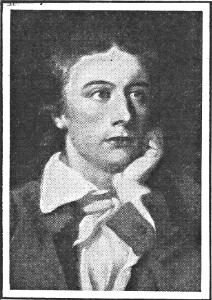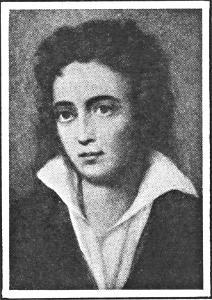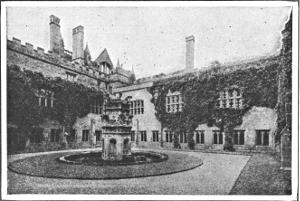THE MENTOR, No. 44,
Famous English Poets
FAMOUS ENGLISH POETS
By HAMILTON W. MABIE, Author and Critic.

JOHN KEATS

PERCY BYSSHE SHELLEY
THE MENTOR
SERIAL No. 44
DEPARTMENT OF LITERATURE
MENTOR GRAVURES
BYRON
SHELLEY
KEATS
WORDSWORTH
TENNYSON
BROWNING
Modern English poetry is rich not only in its quality, but in itsvariety, both of theme and of manner. The exuberant imaginationand splendid profusion of Swinburne are in striking contrast withthe restraint and clearness of style of Matthew Arnold; the fluency andnarrative faculty of William Morris, with the strongly etched and powerfullyphrased work of Francis Thompson and Henley. The classicaldignity of Landor, the humor of Hood, the seriousness of mood of Clough(kluff), the pictorial genius of Rossetti, the fresh invention of Stevensonand Kipling, suggest the range of poetic production of an age notmatched in wealth of genius since the age of Shakespeare. Among thethrong of poets who made lasting contributions to English literatureduring the nineteenth century, six may be regarded as most representative.
Byron died ninety-one years ago; but, although there has been agreat change in the way poets look at life and in their way of writingverse, he holds his place as one of the greater poets, not only in reputation,but in popular regard; and for two reasons,—he was one of the bornsingers to whom men will always stop to listen, and he was also a poet ofrevolt. He is not read in this country as Browning and Kipling are read;nor, on the other hand, is he neglected as Milton and Landor are neglected.His stormy nature and his tempestuous career add an elementof personal interest to the claims of his poetry upon the attention ofreading people today, and he is one of those men of genius about whomit is difficult to be judicial: those who like his work become his partizans,those who dislike him charge him with insincerity and immorality.
It must be frankly confessed that Byron had moments of insincerity,and that he often posed; but he was largely the victim of his temperament.Mr. Symonds has said of him that he was well born and ill bred.He had noble impulses, and he had the strong passions that give energyof feeling and vitality of imagination to many of the greatest men andwomen; but he had neither clearness of moral vision nor steadiness ofpurpose. He had great genius; but he was neither intellectually normorally great. And yet he had such force of mind and eloquence thatGoethe, (gay´-te) who was the greatest critic of his time, if not of all time,declared that the English could show no poet to be compared with him.
